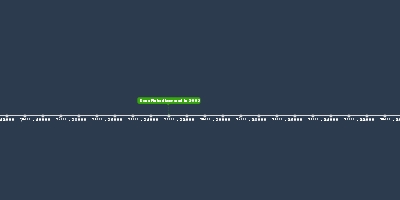JS Bach (jan 1, 1685 – jan 1, 1750)
Description:
Bach, following an illustrious family tradition of church organists and cantors, spent his career in a few German locations and never abroad.Most of Bach's works were written to fulfill the requirements of his job at a given time, be it as church organist, court musician, or the principal musician in Leipzig for nearly the last three decades of his career. Bach was a master of counterpoint, particularly of the fugue, as seen in his "Little" Fugue in G Minor for organ and in the forty-eight preludes and fugues of Das wohltemperierte Klavier. This chapter also looks at his keyboard suites modeled on dance types and at the so-called Brandenburg Concertos. In the realm of vocal music, Bach composed more than two hundred cantatas, most of them sacred, a sort of sung sermon connected to LUtheran church services. His largest sacred works are the Mass in B Minor and two surviving Passion oratorios, John and Matthew.
Bach came from a HUGE family of musicians. He stayed in a relatively small array of local towns in Germany, including Weimar, Cothen, and finally Leipzig (which was one of the large German commcercial cities but only a fraction London's size.)
Bach's career was thus relatively humble, unglamorous, and businesslike. What he wrote at any given time was to a large extent determined by who was employing him and what his assigned duties were, whether as an organist, a court musician, or a church composer. No one needed an opera from him, nor did the opportunity arise to write one.
He wrote a lot of enjoyable and instructive instrumental works for his family, even while professionally writing sacred music...It is hardly surprising that over the years Bach wrote compositions for the private enjoyment of his family and the instruction of his children, works that continue to help young musicians learn their craft. Some of his later instrumental pieces were written for the COllegium Musicum in Leipzig, a society of professional instrumentalists and students, founded by Telemann in 1701.
Bach composed some of his most significant instrumental works during his later Leipzig years for speculative reasons. He produced a few masterworks of an old-fashioned, abstract nature in which he gave full rein to his unrivalved contrapuntal virtuosity. The sheer technical dexterity in the art of composition that Bach exhibits here has never been surpassed. In addition, he seems to have njoyed esoteric or symbolic practices, such as spelling his name musically. Also Bach motif.
Elaborate technical experimentation came increasingly into play in his late works. Goldberg variaitons, Musical offering, The Art of Fugue (speculative composition)
Used madrigalisms in chorale preludes at least, such as Durch Adam Falls, where he uses a descending diminished seventh in the bass to depict Adam's fall from grace.
Musical Europe came to him in the form of manuscripts and publications, although he never left Germany.
At a time where French and Italian musicians were mutually suspicious and resisting each other's influence, German musicians defined themselves as universal synthesizers.
Added to timeline:
Date:
jan 1, 1685
jan 1, 1750
~ 65 years
